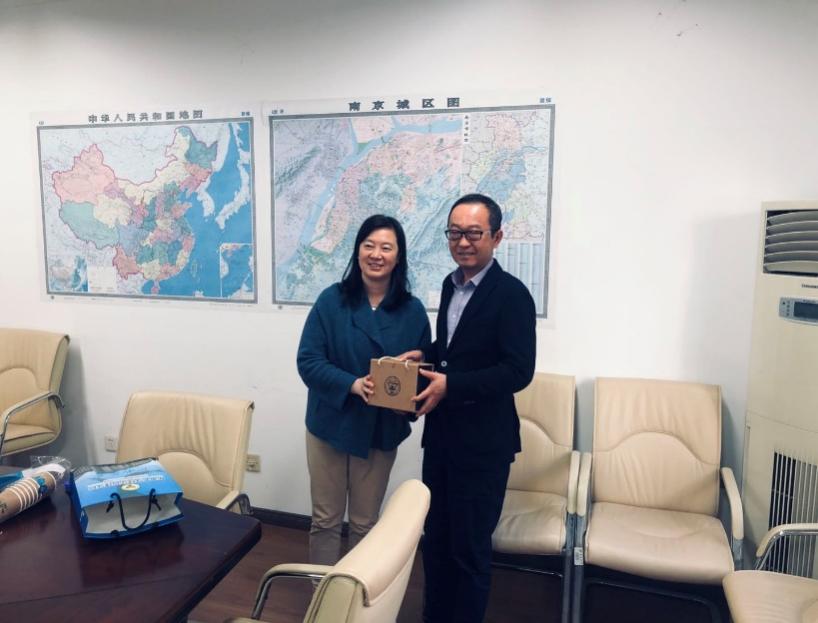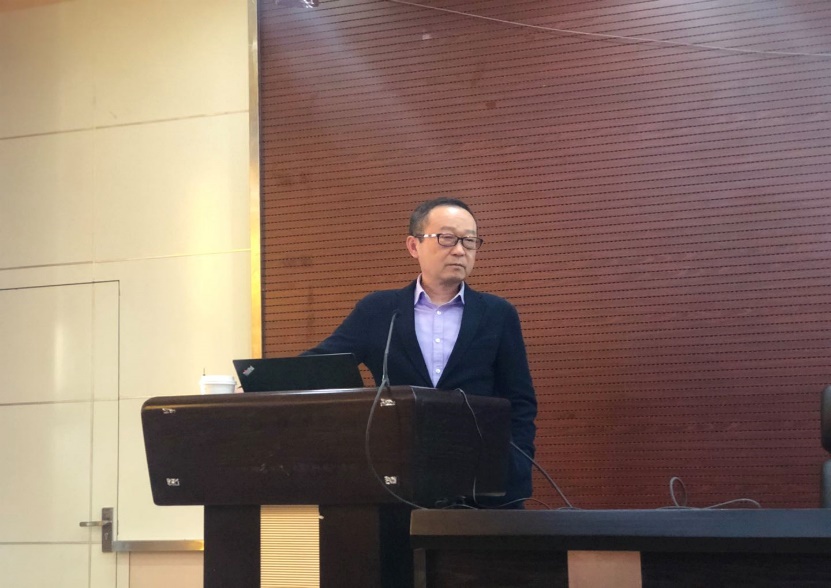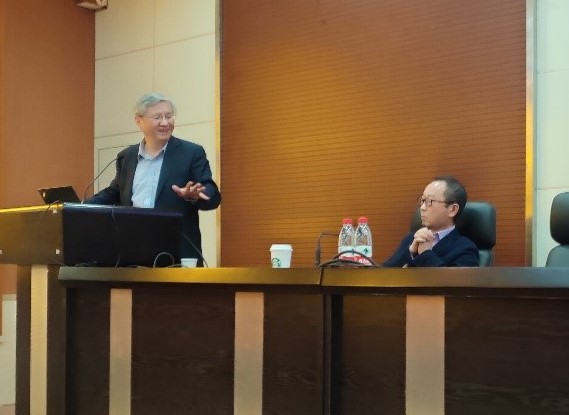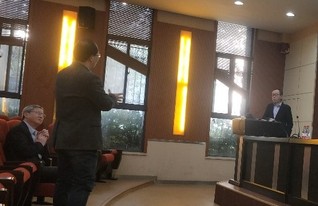On the afternoon of October 23rd, 2020, Professor Zhang Jun, a famous economist in our country, the Dean of the School of Economics, Fudan University, and the head of the National Center for Economic Research, came to visit our school on invitation and made an academic report themed “ResearchingYangtze River Delta integration through marginal effect”. Before the report, professor Yuan Jianhong, the Party Secretary of our school, had a meeting with dean Zhang Jun and exchanged a short conversation. The report session was hosted by Professor Xu Kangning, who introduced Professor Zhang Jun’s academic achievements and influence both home and abroad to attending teachers and students. Some teachers and postgraduates of the School of Economics and Management attend the academic report.

Professor Yuan Jianhong, the Party Secretary of our school, gave a souvenir to professor Zhang Jun on behalf of our school

The splendid speech of Professor Zhang Jun
As Professor Zhang Jun pointed out in the report, the Yangtze River Delta (including Jiangsu, Zhejiang, Shanghai, and Anhui) region had been an essential growth pole in promoting the development of our country’s economy and the integration development of the Yangtze River Delta region had its important strategic meaning. He illustrated the marginal effect of regional separatism through simple spatial models. By simulating the income distribution in Shanghai, Ningbo, Hangzhou, and Hefei and comparing the true distribution of capita GDP in that region, he proved that there was a low-income region (Jiaxing-Huzhou-Xuancheng) between Shanghai and Zhejiang. Professor Zhang Jun supposed that under the current regulation of land use, the requisition-compensation balance of farmland in the provincial region was unable to remove the obstacle blocking the integration development of the Yangtze River Delta region, indicating that we should go beyond the original provincial limitation and comprehensively introducing market transaction mechanism of construction land index while giving solutions of using land applying integrative policy to eliminate the low-income region.


The two-hour-long academic report reached an end in warm applause from students. Teachers and students who attended the session all benefited a lot from the report.
(Photos: Ni Kejin, Liang Changyi; Text: Wu Jiaxian)
Translated by: Li Zhaoting
Reviewed by: Luo Jiaoying

